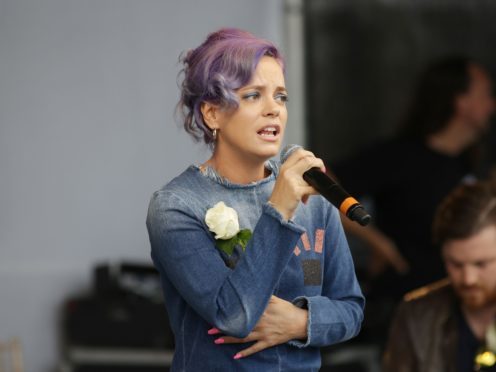Lily Allen has said that losing her baby eight years ago prompted her to become more political and use her position to call for change.
The singer, who is known for being outspoken on social and political matters, was six months pregnant when she suffered a stillbirth in 2010.
Asked by Labour leader Jeremy Corbyn in The Observer’s The New Review if there was a “specific moment you decided to use your position to make a change”, the 33-year-old said it was when she lost her baby.
“That was the first time that something really, really traumatic happened to me,” she said.
“I’d had these amazing highs, and I had this horrible low, and I was left with a feeling of: I’m lucky to have Sam (Cooper, her former husband) and to have people around me to help me through.
“And also that there were lots of people out there who go through shit all the time, these traumatic experiences are being lived by people up and down this country, and all over the world.
“So if there’s anything I can do to help those people, use this platform to help them, then I’ll do it.”
Allen said that is why she went to former refugee migrant camp the Jungle in Calais in 2016, and why she previously opened up about her experience with being stalked.
“So, yes, I think that losing the baby was a trauma which led me to… My whole outlook on everything changed after that,” she added.
The singer said that her forthcoming fourth album No Shame is also about the change in her life following losing her child.
Morning ! https://t.co/AVwyABEdLF
— Lily Allen (@lilyallen) May 6, 2018
It came after she previously suffered a miscarriage in 2008 while dating Chemical Brothers star Ed Simons.
Allen, who has daughters Ethel, six, and Marnie, five, with ex-husband Cooper, said there is a role for artists “not to be so scared” to speak out about social and political injustices.
She added: “Because if everybody came together to fight these forces, then maybe we could stop this fascist regime we’re living under.”
Allen said she is concerned that there is not as much of a cultural movement against the establishment coming from the music world any more.
She said she thinks “people are intimidated by the backlash”.
